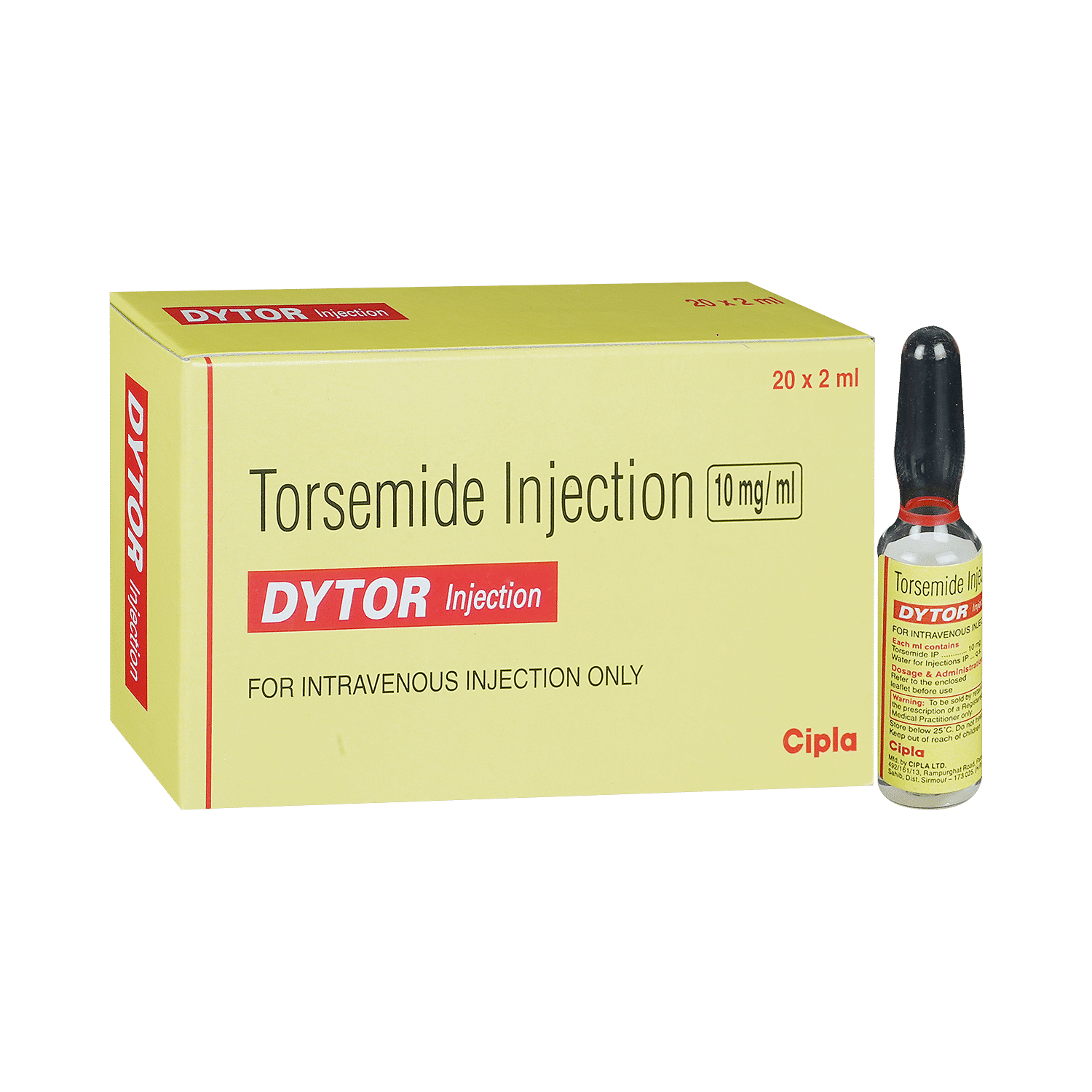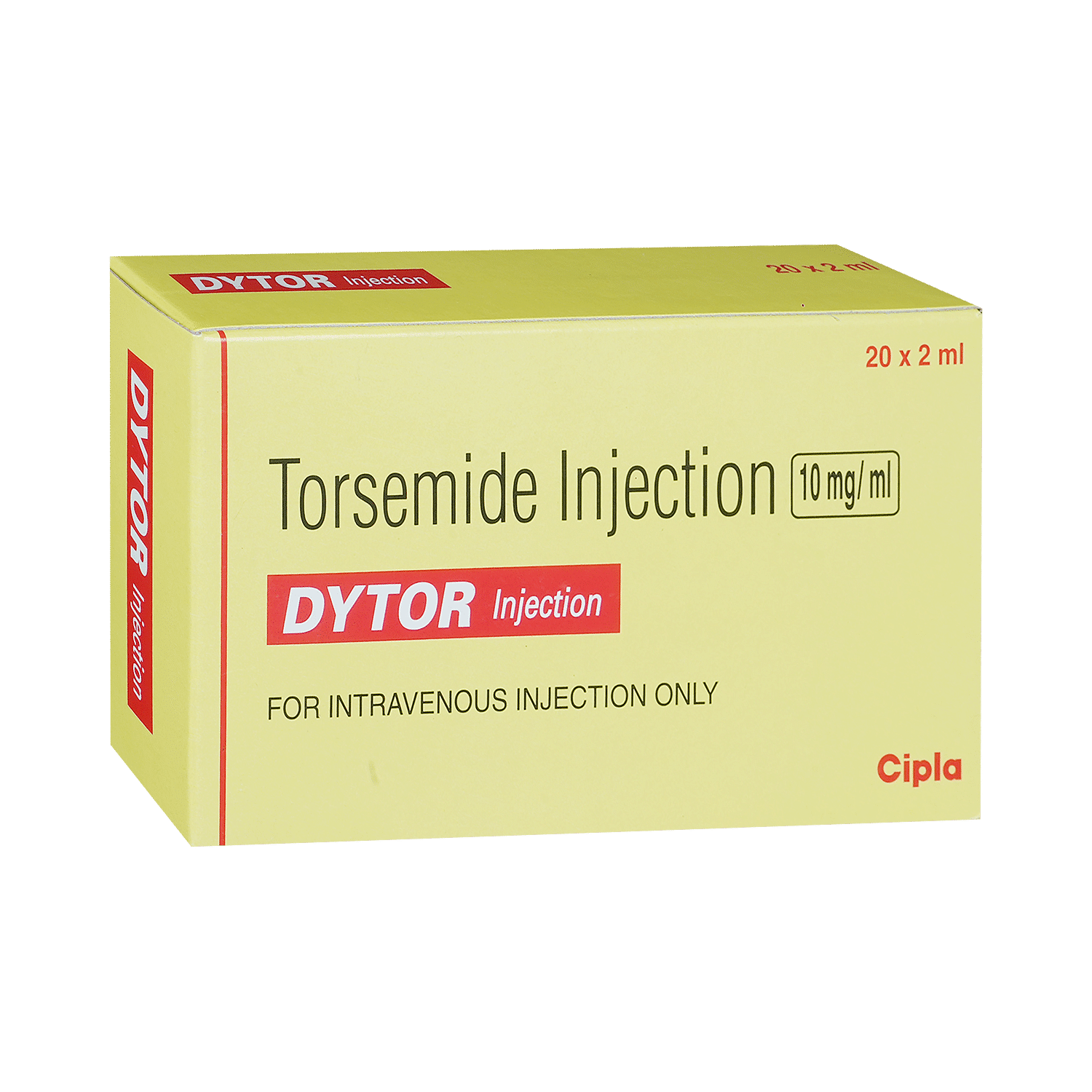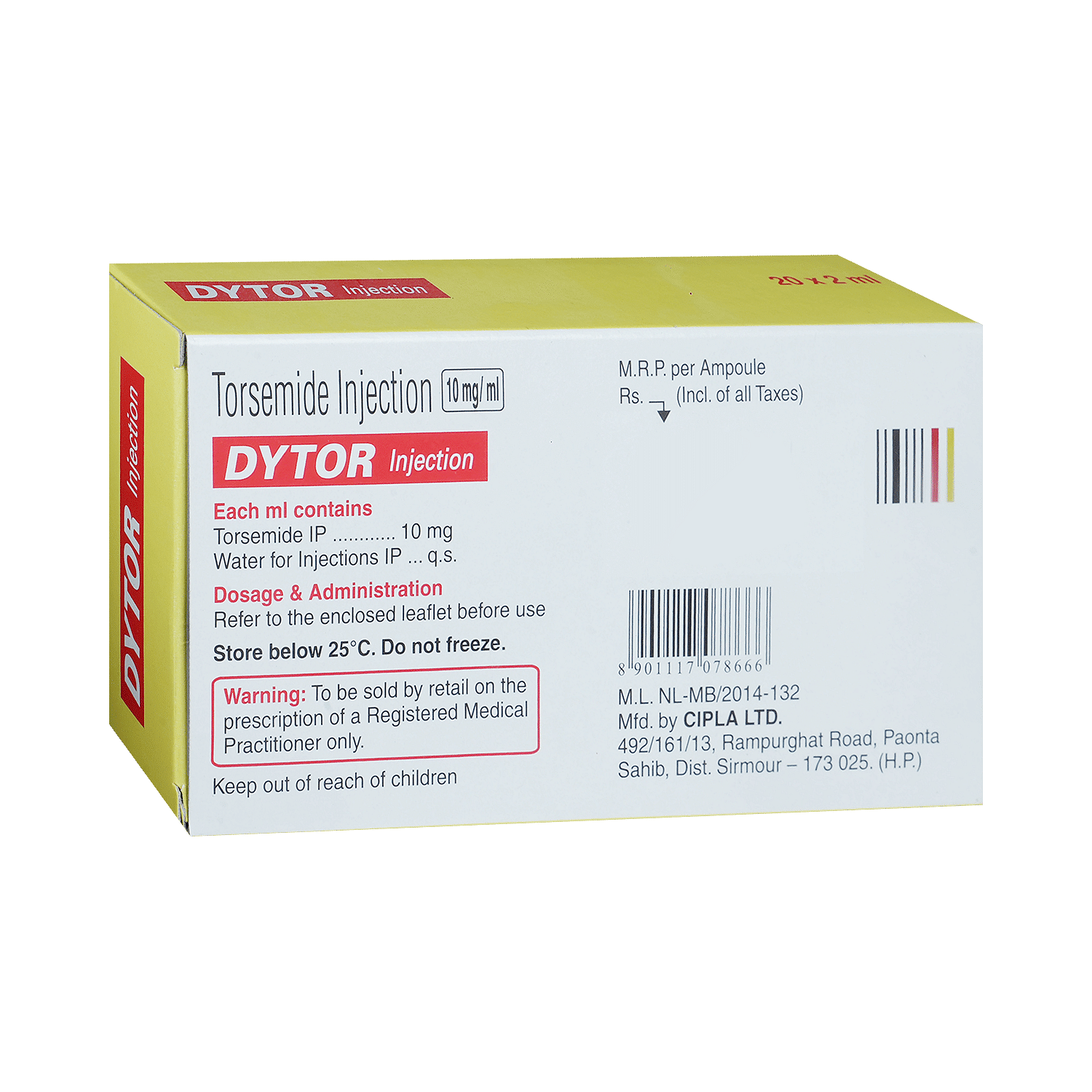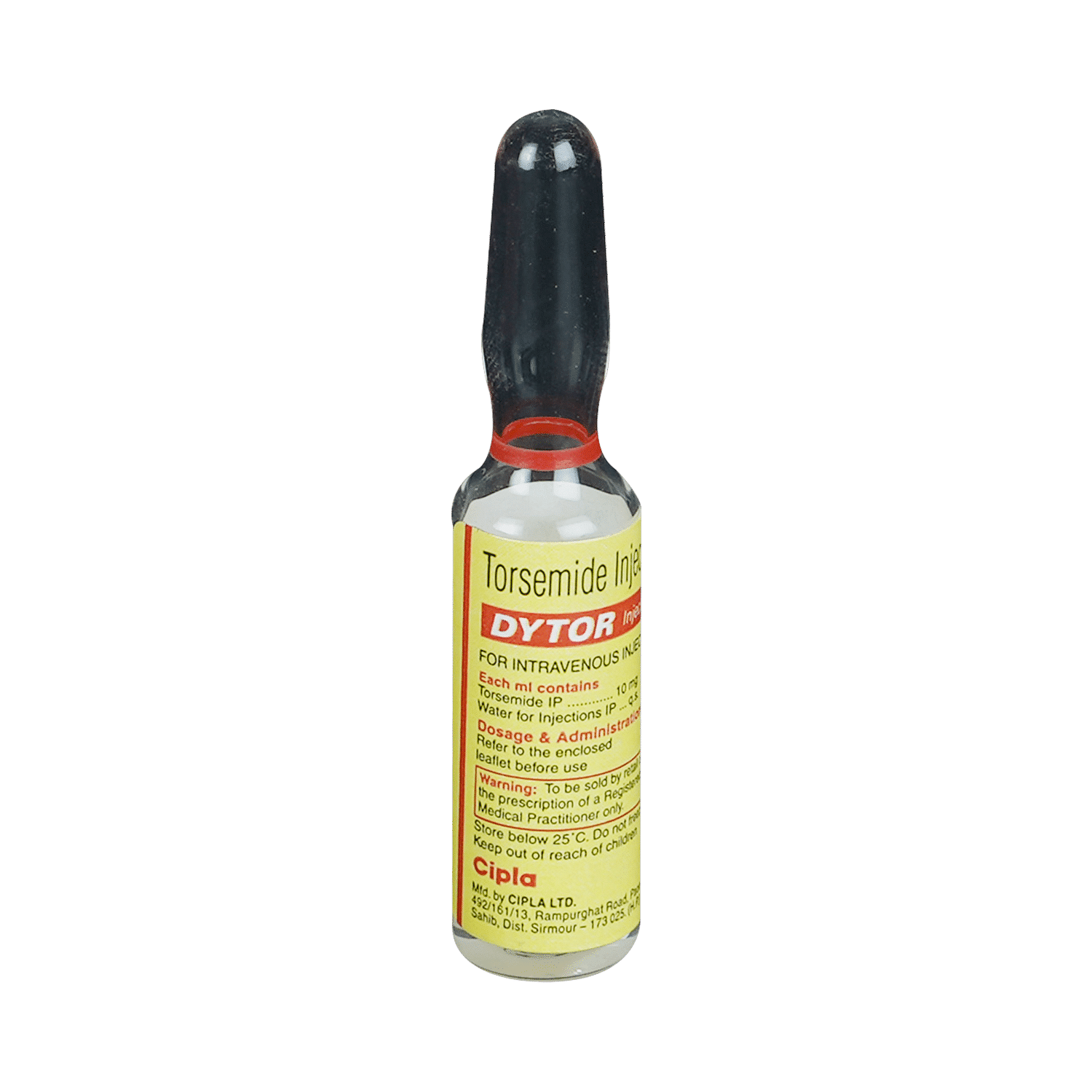



Dytor Injection
Manufacturer
Cipla Ltd
Salt Composition
Torasemide (10mg)
Key Information
Short Description
Dytor Injection is a diuretic used for the emergency treatment of very high blood pressure (hypertensive crisis) and rapid reduction of swelling caused by excess water in the body.
Dosage Form
Injection
Introduction
Dytor Injection helps your body get rid of extra water and salt through urine. It is commonly used to treat people with excess fluid build-up due to heart failure, liver or kidney disease. It is injected into a vein under the supervision of a doctor. Your doctor may monitor your blood pressure after giving this medicine. Common side effects of this medicine include headache, dizziness, dehydration, and decreased blood pressure. These are usually mild and disappear after a short time. Consult your doctor if they bother you or do not go away. Before taking this medicine, let your doctor know if you have any liver problems. Pregnant or breastfeeding women should also consult their doctor before taking it. Regular monitoring of kidney function tests and electrolyte levels is important while using this medicine.
Directions for Use
Your doctor or nurse will give you this medicine. Kindly do not self-administer.
How it works
Dytor Injection is a diuretic. It removes extra water and certain electrolytes from the body by increasing the amount of urine produced.
Quick Tips
It is given as an injection into a vein under the supervision of a doctor. Consult your doctor if you experience dizziness, tiredness, or muscle weakness that does not go away. Take potassium supplements or potassium-rich diet (banana, spinach, coconut water, etc.) as Dytor Injection can decrease your potassium levels and lead to dehydration. You may be asked to get regular blood tests done to monitor your kidney function.
Frequently asked questions
Is Dytor Injection stronger than Furosemide?
Both Dytor Injection and furosemide are clinically indicated for similar conditions. While both drugs achieve similar levels of efficacy, Dytor Injection has a longer duration of action compared to furosemide. The effect is felt within an hour after administration.
Does Dytor Injection cause loss of potassium?
Dytor Injection may not directly cause potassium loss. However, due to the removal of excess fluids and electrolytes during its use, there might be a temporary increase in potassium loss through urine. This is why monitoring your electrolyte levels is crucial.
Does Dytor Injection raise blood sugar?
Yes, Dytor Injection may lead to an increase in blood glucose levels, potentially causing hyperglycemia. It's important to regularly monitor your blood glucose during treatment with Dytor Injection.
Does Dytor Injection increase creatinine?
Yes, Dytor Injection might temporarily increase creatinine values depending on the dose administered. While it is a mild increase, its effect may be more pronounced for prolonged use. However, after discontinuing treatment, these levels return to their baseline.
What is Dytor Injection used for?
Dytor Injection is specifically indicated for emergency situations involving extremely high blood pressure (hypertensive crisis). This helps to rapidly lower and normalize blood pressure, thereby preventing potential heart attacks or strokes. It also plays a role in removing excess fluids and electrolytes from the body and reducing swelling due to fluid retention.
What are the side effects of Dytor Injection?
Common side effects associated with Dytor Injection include headache, dizziness, dehydration, constipation, decreased blood pressure, and stomach upset. Some patients may experience localized reactions at the injection site, such as swelling, pain, and redness. These reactions are typically temporary and self-limiting.
What other lifestyle changes should I make while taking Dytor Injection?
Alongside maintaining a healthy lifestyle, adopting further strategies to manage your overall health can enhance the benefits of using Dytor Injection. Reducing or avoiding smoking and alcohol consumption is recommended for both heart-related improvements and blood pressure control. Regular exercise combined with a balanced diet rich in whole grains, fruits, vegetables, and low-fat products will contribute significantly to managing your hypertension. Limiting salt intake and exploring stress-reducing techniques like yoga or meditation can also support overall well-being.


